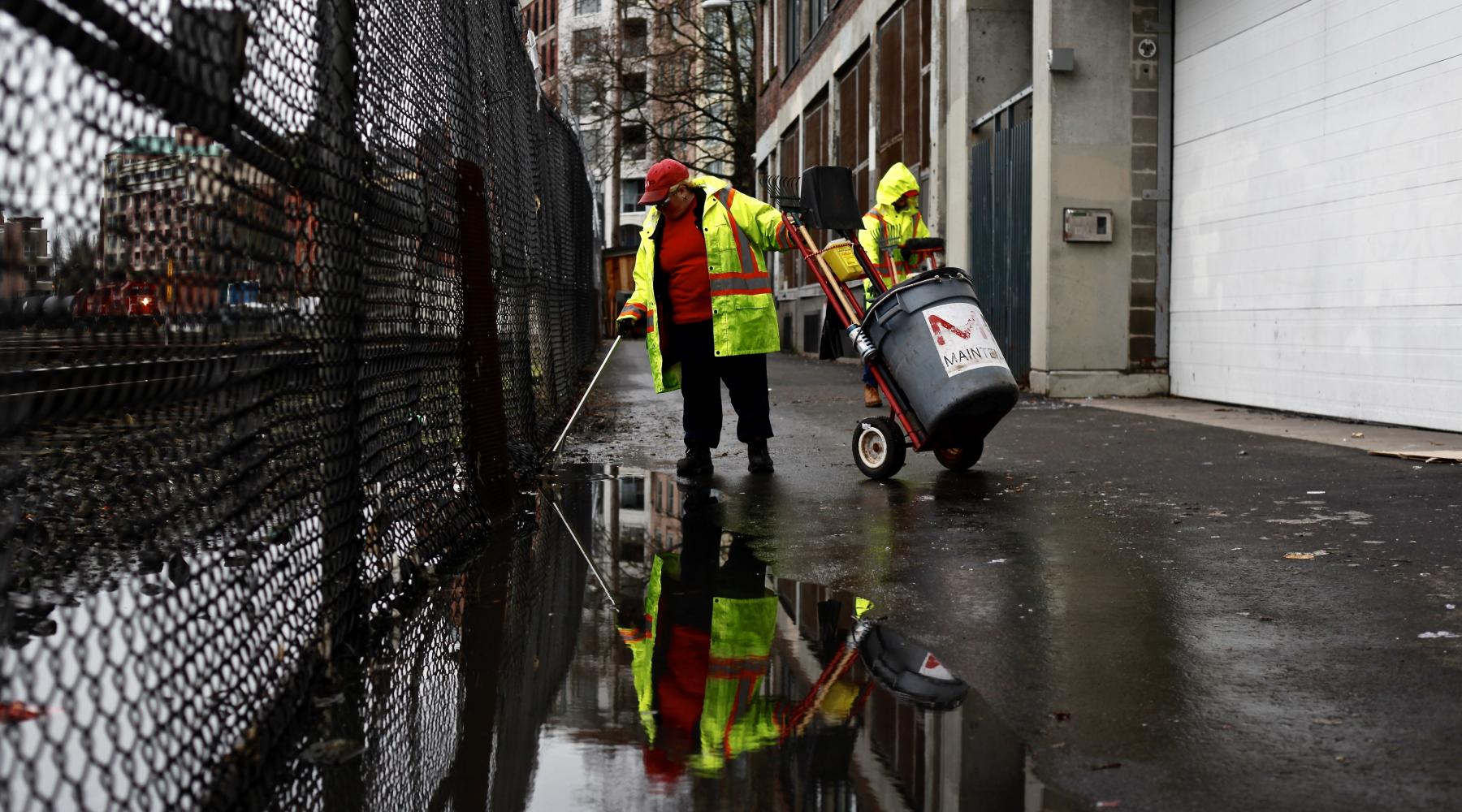Sometimes what makes the biggest difference in a person’s life is the sense of confidence that comes from getting back to work and belonging in the community.
Last year, Nicole Thurgood was looking too long and hard for work. She began feeling low, asking herself: “What am I going to do? How do I feed my family?”
The 46-year-old Strathcona resident turned to a job-readiness program with Mission Possible, a Vancouver community development agency and accepted a six-month transitional job in one of its social enterprises, MP Maintenance, which provides exterior building cleaning services and landscape maintenance.
Nicole removed graffiti, picked up trash and generally “made things look nice”, but for her it was the experience of being part of the team and, “just knowing there are a lot of good people out there in the world who care enough to take a chance on you” that transformed her mindset.
Yes! Let’s give this a try
This year, she went to her local Italian supermarket, Benny’s Market, for some cheese to make biscuits and returned with a job offer in the deli. She says, “MP Maintenance gave me the confidence to go, ‘Yes! Let’s give this a try and make it work.’”
While MP Maintenance helps over 60 people like Nicole break through employment barriers each year, the need is greater. To expand services, MP Maintenance is seeking to scale up operations.
Two other social enterprises that also help people overcome employment barriers are in a similar situation and offer complementary services to property managers: The Cleaning Solution provides janitorial services and CleanStart offers pest control, junk removal and contaminated site cleanup.
“Over the years, the three social enterprises secured customers, grew their sales and operations, but then hit a cap on the next level with larger buildings that have a lot of different needs,” says Sean Condon, who worked with the social enterprises as Vancity Community Foundation’s Social Enterprise Development Advisor. “Larger companies want to have just one contract, not three."
Creating a Clean Collective
Enter the radical idea of hiring a business development manager to sell all of the services as a one-stop shop called the Clean Collective. On their own, each social enterprise couldn’t afford a sales person, but this approach allows them to create sales capacity for their organizations by bundling services.
Bundling services for multiple companies under a single sales person isn’t novel in the business world, says Sean, but is a new strategy for the social enterprise sector. Vancity Community Foundation and Community Impact Real Estate (CIRE) have provided funding for the position for 2019 and 2020.
The Foundation was a founding member of CIRE last year and the two organizations share a commitment to social purpose real estate and economic inclusion. As a social enterprise, CIRE manages 52 commercial property units in Vancouver, leasing about 60 percent of them at below-market rates to social enterprises and non-profits and using the income to invest in community economic development.
More sales = greater social impact
“For us, giving this grant is not about the salesperson – it’s about the sales,” says David LePage, CIRE founding Executive Director. “The sales will generate job opportunities for low-income people in the community.” CIRE, which uses the services of Clean Collective members on its properties, also worked with BC Housing to create contracts for the Collective.
The Foundation has been supporting and investing in each of the Clean Collective enterprises over many years, from providing initial planning dollars and start-up funds to growth capital. “The Foundation has been pretty integral for the Clean Collective members, early on by providing consulting and business development advice, as well as funding and grants,” says Matthew Smedley, the Executive Director and CEO of Mission Possible. “As we’ve all become established, over the last 10 to 15 years we’ve been supported along the way to scale up.”
Solutions in partnership
The decision to provide the grant for a business development manager evolved in partnership, with the Foundation, the social enterprises and CIRE all at the table discussing what the next stage of their business development could be. Each of the social enterprises had reached a sales plateau and recognized they needed to work together to develop the sales capacity to reach new markets.
The sales they project could allow MP Maintenance to employ up to 60 more people a year.
“When people who are unemployed move back into employment they experience a new sense of confidence and worth,” Matthew says. “There’s a real transformation from being able to use their own gifts and abilities. It’s an incredibly humanizing and dignifying opportunity for people.”
